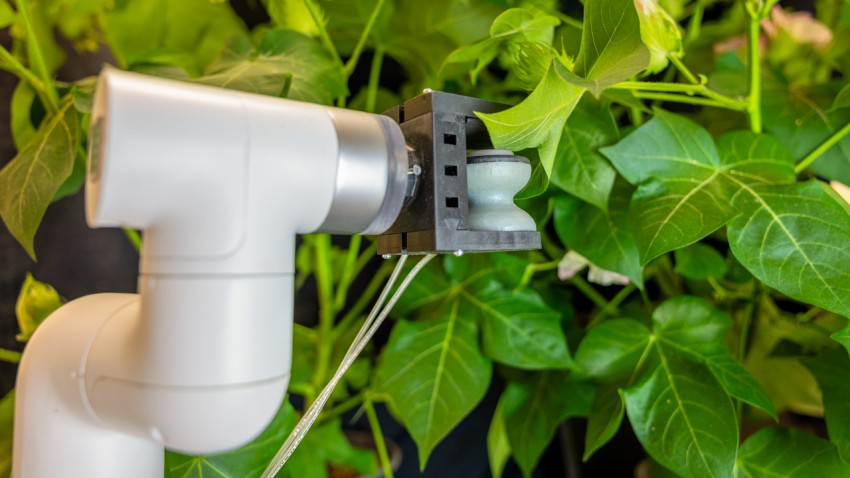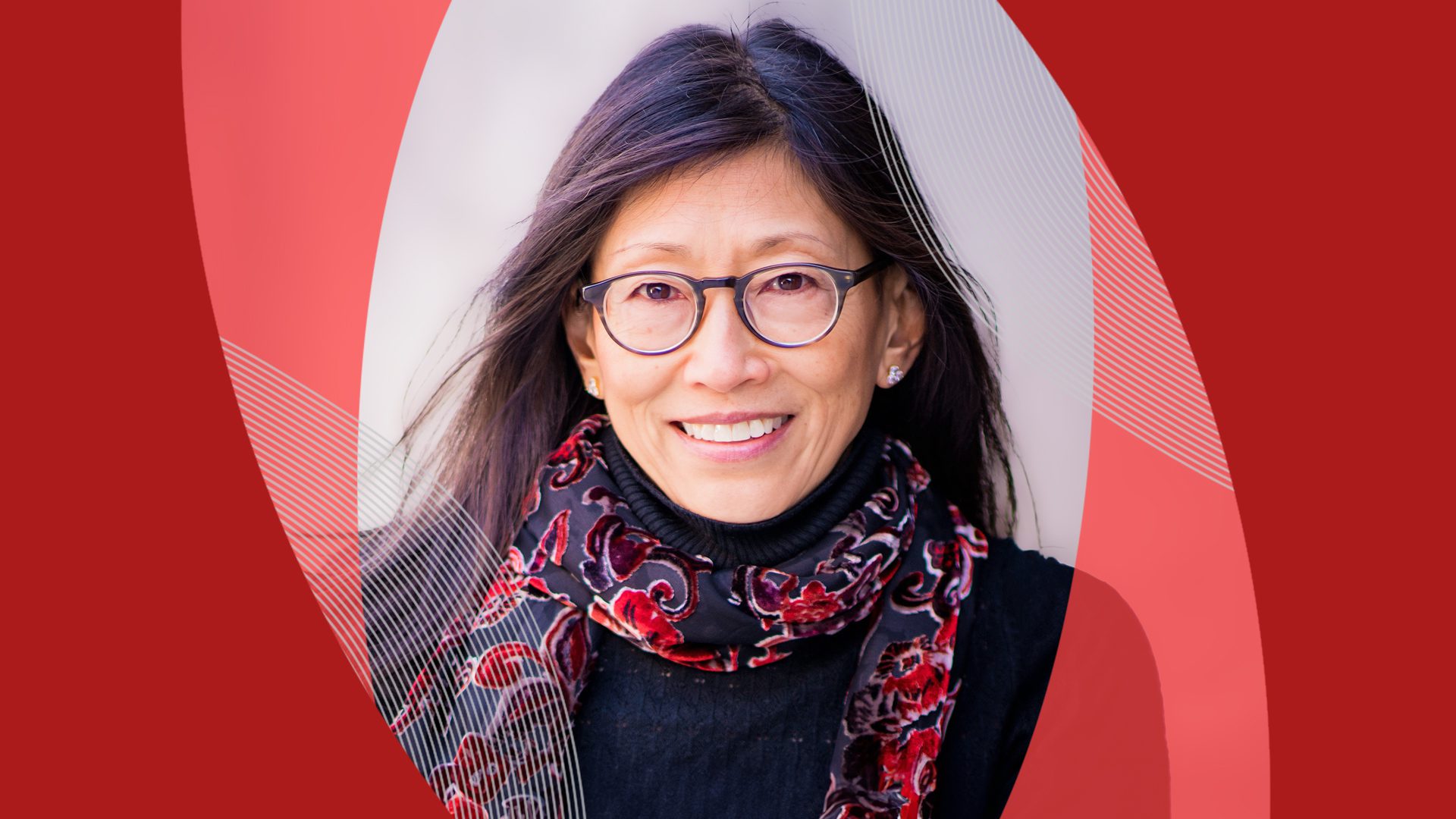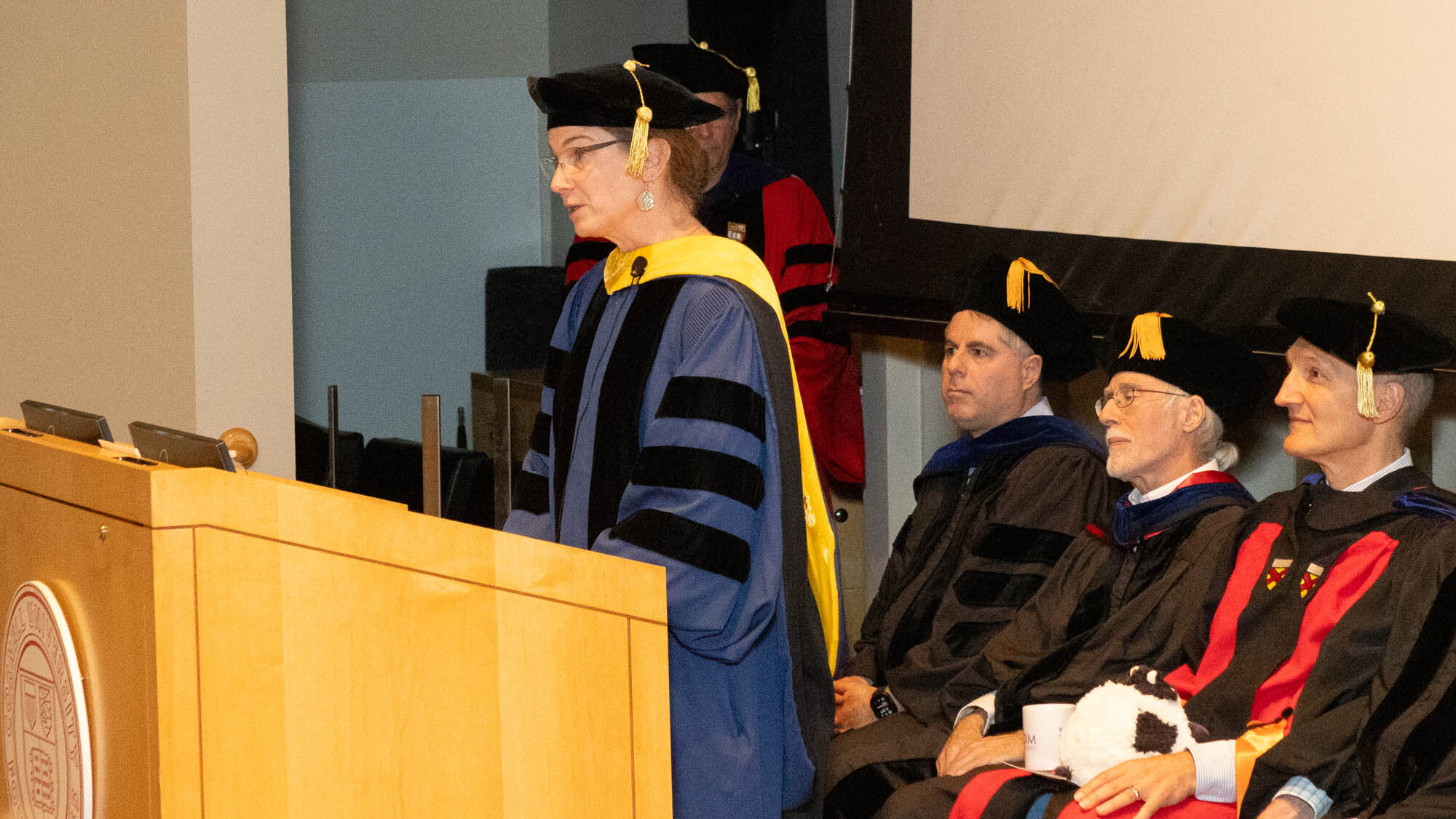News
-
![Doctoral student Joshua Umansky-Castro and Verena Padres ’26 work on components for the Sailing to the Stars project, which will be tested aboard the International Space Station.]()
Student-designed technology bound for space station
A pair of student-led projects that feature small, low-cost satellites and light sails are headed to the International Space Station for testing.
-
![]()
SPROUT Awards cultivate early-stage engineering research
From designing a reversible male contraceptive to detecting life on distant ocean worlds, the latest Cornell Engineering SPROUT Awards are cultivating breakthroughs across medicine, space exploration, robotics and environmental sensing.
-
![The soft-robotic leaf gripper injects leaves with sensors that help it detect and communicate with its environment.]()
Soft robotic gripper injects leaves with precision
Cornell researchers have developed a soft robotic device that gently grips and injects living plant leaves with sensors that help it detect and communicate with its environment. The robot can also inject genetic material into the leaves.
Latest Awards and Recognition
View all-
Two doctoral students awarded DOE fellowships
Two Cornell Engineering doctoral student were awarded fellowships by the U.S. Department of Energy…
July 14, 2025
-
Tian received DARPA Fellowship
Zhiting Tian, professor, has received the Defense Advanced Research Projects Agency (DARPA) Director’s Fellowship, an…
July 10, 2025
-
Moridi to participate in FOE Symposium
Atieh Moridi, assistant professor, has been selected to participate in the Grainger Foundation Frontiers…
June 30, 2025
-
Cornell Engineering celebrates Faculty Leadership Academy pilot cohort
Sixteen Cornell Engineering faculty members recently completed the Cornell Engineering’s first immersive Faculty Leadership Academy, a professional development pilot program designed to cultivate leadership skills among faculty members.
June 9, 2025






